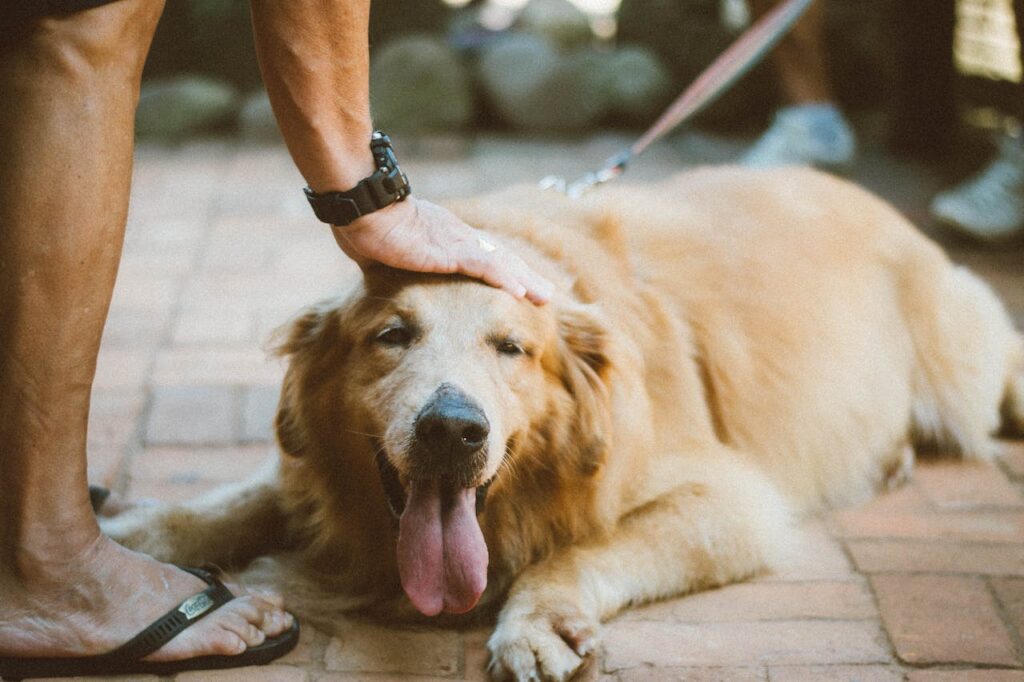Chia seeds and flax seeds are nutrient-dense, plant-based seeds suitable for feeding dogs. They contain essential fatty acids, fiber, and micronutrients. Recommended serving sizes for dogs vary. Incorporating these seeds into a balanced diet may enhance your dog’s overall nutrition.
In this post, we’ll see whether you can feed your dog chia seeds and flax seeds, what are their benefits, harmful effects and most importantly, things to know (facts) about chia seeds and flax seeds. Additionally, we would also take a look at the nutritional value and the proper way to feed dogs chia seeds and flax seeds. Finally, we will answer the most important questions about this topic and share the final verdict.
But, firstly – let’s see, can dogs eat chia seeds and flax seeds?

Table of Contents
ToggleCan Dogs Eat Chia Seeds and Flax Seeds Safely?
Yes, dogs can eat chia seeds and flax seeds. Offer in moderation, starting with 1 teaspoon per day for small dogs and up to 1 tablespoon for larger breeds. Mix seeds into their food. Ensure proper hydration. These seeds provide omega-3 fatty acids and fiber, promoting a healthy coat and digestion.
Benefits of Feeding Your Dog Chia Seeds and Flax Seeds (5 Benefits)
Here is a list of 5 benefits for feeding your dog chia seeds and flax seeds:
- Healthy Coat: These seeds are rich in omega-3 fatty acids, promoting a healthy coat.
- Digestive Aid: High fiber content aids digestion and can alleviate constipation.
- Joint Health: Omega-3s support joint health, benefiting dogs with arthritis or joint issues.
- Antioxidant Properties: Flax seeds contain lignans, providing antioxidant properties.
- Cardiovascular Support: Supportive of cardiovascular health with potential cholesterol-lowering effects.
Harmful Effects of Feeding Your Dog Chia Seeds and Flax Seeds (5 Harms)
Here are 5 harmful effects for feeding your dog chia seeds and flax seeds:
- Gastrointestinal Issues: Overconsumption may lead to digestive upset, including diarrhea.
- Caloric Intake: High-calorie content, so moderation is crucial to prevent obesity.
- Choking Hazard: Swelling when in contact with liquids may pose a choking risk.
- Phytic Acid Content: Anti-nutrient phytic acid may reduce mineral absorption if not prepared properly.
- Allergies: Some dogs may have allergies, so monitor for adverse reactions.
Things to Know About (Facts) about Chia Seeds and Flax Seeds
In this section, we will discuss some facts and things to know about chia seeds and flax seeds.
| Attribute | Description |
| Appearance | Chia: Small, oval, various colors. Flax: Small, flat, brown or golden. |
| Nutritional Value | Chia: Rich in omega-3, fiber, protein. Flax: Omega-3, lignans, fiber, protein. |
| Caloric Content | Chia: Moderate. Flax: Moderate to high. |
| Preparation | Chia: Hydrate for gel-like consistency. Flax: Ground for better digestion. |
| Health Benefits | Chia: Supports heart health, digestion. Flax: Cardiovascular health, anti-inflammation. |
| Caution | Chia: Overconsumption may cause digestive issues. Flax: Ensure proper grinding. |
Nutritional Value of Chia Seeds and Flax Seeds
In this section, we will discuss the nutritional value of chia seeds and flax seeds.
| Nutrient | Chia seeds (per 100 g) | Flax seeds (per 100 g) | Unit |
| Calories | 486 | 534 | Kcal |
| Protein | 16.5 | 18.3 | g |
| Fat | 30.7 | 42.2 | g |
| Carbohydrates | 42.1 | 28.9 | g |
| Fiber | 34.4 | 27.3 | g |
| Omega-3 (ALA) | 17.8 | 22.8 | g |
| Calcium | 631 | 255 | mg |
| Iron | 7.7 | 5.7 | mg |
| Magnesium | 335 | 392 | mg |
| Phosphorus | 860 | 642 | mg |
How to Feed Dogs Chia Seeds and Flax Seeds?
Here we will explain in 3 proper steps how to properly feed your dog Chia Seeds and Flax Seeds:
- Start Small: Introduce a small amount, such as 1/2 teaspoon, mixed with your dog’s food.
- Hydration: Ensure your dog has access to water as both chia seeds and flax seeds absorb liquid.
- Monitor Response: Observe your dog for any adverse reactions or digestive issues.
Things to Take Care of (Precautions) Before Feeding Your Dog Chia Seeds and Flax Seeds:
Here are some precautions you must take when you feed your dog chia seeds and flax seeds:
- Quantity Matters: Stick to small amounts, as excessive intake may lead to gastrointestinal issues.
- Consult Your Vet: Always consult your vet before adding new foods to your dog’s diet.
- Ground Form: For flax seeds, consider grinding them to enhance digestibility.

Can Dogs Eat Alternative Forms of Chia Seeds and Flax Seeds?
In this section, we will discuss if dogs can eat alternative forms of chia seeds and flax seeds such as flax oil, ground flax seeds, and more.
Can Dogs Eat Whole Chia Seeds?
Yes, dogs can safely consume whole chia seeds in moderation. You can introduce these nutrient-packed seeds by mixing up to 1 teaspoon with your dog’s food, ensuring they have access to water. Keep a close eye for any signs of digestive discomfort and introduce gradually to assess tolerance. Whole chia seeds are not only a source of omega-3 fatty acids but also offer nutritional benefits for your furry friend.
Can Dogs Eat Ground Flax Seeds?
Yes, dogs can enjoy the benefits of ground flax seeds in their diet. Incorporate up to 1 teaspoon of ground flax seeds into your dog’s food, preferably ground, and monitor for any digestive sensitivity. With its richness in fiber and omega-3 fatty acids, ground flax seeds contribute to a wholesome and nutritious diet for your pooch.
Can Dogs Eat Flax Oil?
It depends. The suitability of flax oil for dogs depends on specific circumstances, so it’s advisable to consult your veterinarian for personalized guidance. When considering flax oil, follow your vet’s recommendations for an appropriate dosage, incorporating it into your dog’s food. Flax oil, with its essential omega-3 fatty acids, can be a valuable addition to your dog’s diet, promoting overall health under professional guidance.
Can Dogs Eat Soaked Chia Seeds?
Yes, dogs can safely consume soaked chia seeds, offering hydration and additional nutritional benefits. Soak up to 1 teaspoon of chia seeds, mix them with your dog’s food, and be cautious about proper soaking to avoid any choking risks. Introduce gradually, and your pup can enjoy the hydrating and nutrient-rich advantages of soaked chia seeds in their diet.
What Other Seeds and Grains can a Dog Eat?
Here is a list of 5 other seeds and grains that your dog can eat:
- Pumpkin seeds
- Sunflower seeds
- Quinoa
- Oats
- Hemp seeds
Frequently Asked Questions (FAQs)
In this section, we will discuss some frequently asked questions regarding chia seeds and flax seeds and feeding them to dogs.
How are chia seeds and flax seeds defined, and what makes them distinct from each other?
Chia seeds and flax seeds are small, nutrient-packed seeds. Chia seeds are known for their gel-like consistency, while flax seeds are rich in lignans. Both offer unique nutritional benefits for dogs.
Is it safe to feed dogs chia seeds and flax seeds daily?
Yes, dogs can safely consume chia seeds and flax seeds daily, but moderation is crucial. Excessive intake may lead to digestive issues, so portion control is recommended.
How do the nutritional profiles of chia seeds and flax seeds compare, and which is more beneficial for dogs?
While both seeds offer omega-3 fatty acids, chia seeds provide more fiber, making them beneficial for digestive health. The choice between them depends on the specific nutritional needs of the dog.
What are some potential alternatives to chia seeds and flax seeds for dogs with specific dietary restrictions?
Here are 5 potential alternatives to chia seeds and flax seeds for dogs with specific dietary restrictions:
- Hemp seeds
- Pumpkin seeds
- Sesame seeds
- Sunflower seeds
- Safflower seeds
These alternatives cater to various dietary needs, ensuring a diverse seed intake for dogs.
Conclusion
In conclusion, chia seeds and flax seeds offer valuable nutrients for dogs when fed in moderation. These omega-3-rich seeds contribute to overall health, supporting coat shine and digestion. However, responsible pet ownership involves understanding individual dietary needs. Consult your veterinarian for personalized guidance on incorporating chia seeds and flax seeds into your dog’s diet.



